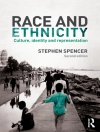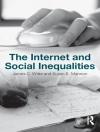Social Media and Social Order combines a structural analysis of the global impact of social media as contributing to the production of a datafied social order with a series of actor-focused analyses, each examining how roles structured by social media are performed at various sites: enmeshed in European cities, entangled in contested Middle Eastern borders, and embedded in provincial Indian small-town networks. The final section then arcs back to a focus on the general properties of social media networks revealed through two American cases, emphasizing the human costs for the recipients of abuse (legislators of color) and the political costs of participatory propaganda for a deliberative understanding of democracy.
A central theme is how the principle of differential treatment embedded in the datafied social order is becoming increasingly widespread across social fields. The book demonstrates how social media are implicated in reshaping social order in ways which align with this principle, including creating new precarious hierarchies of esteem, reinforcing existing social, class and religious hierarchies, opening political discussion to more participants but at the cost of reinforcing local hierarchies and dominant discourses, underlining gendered constructions of national identity, amplifying the abuse received by women and people of color in leadership positions and enmeshing users in the circulation of propaganda which resonates with their preconceptions, thus deepening societal polarization.
Sobre el autor
David Herbert, University of Bergen, Norway
Stefan Fisher-Høyrem, University of Agder, Norway












